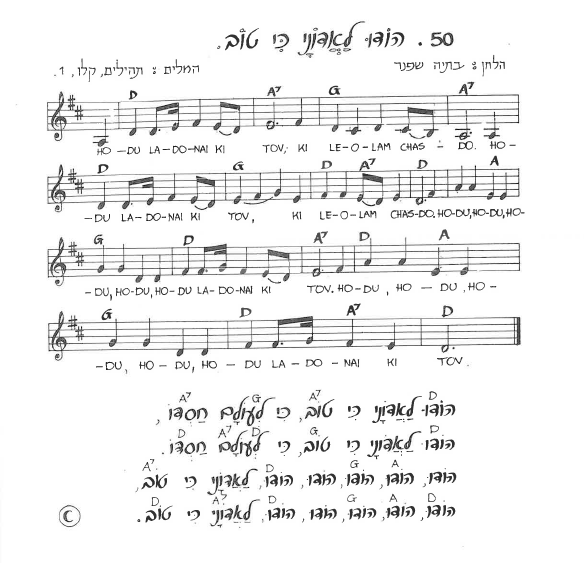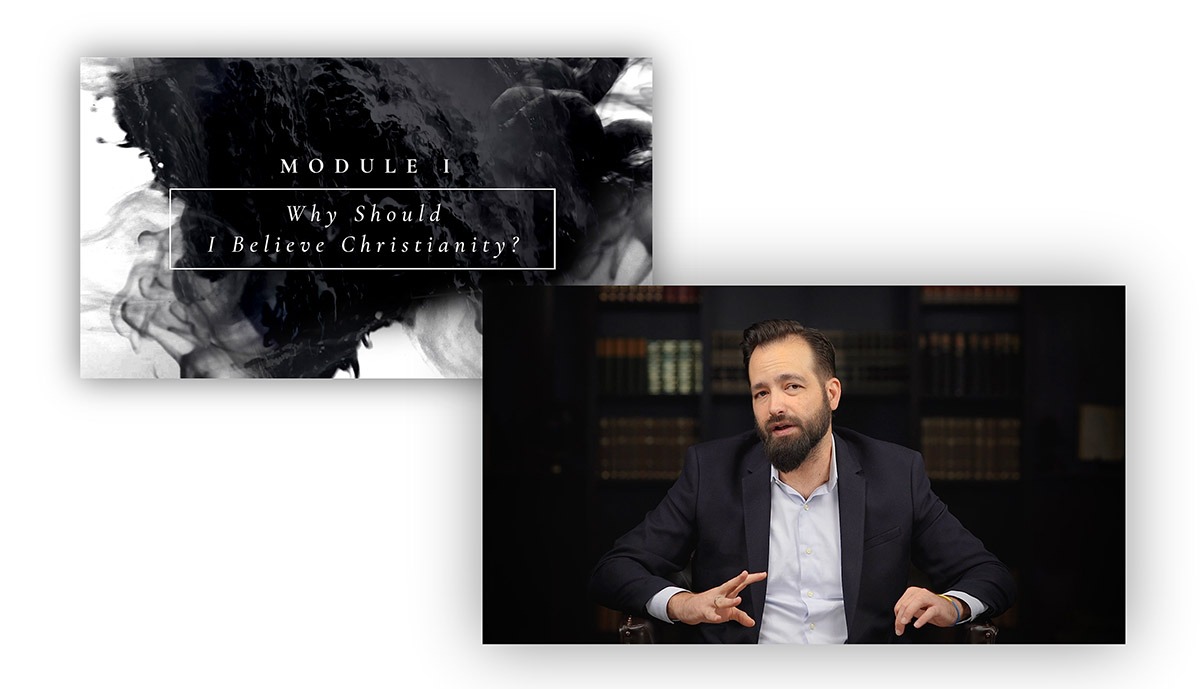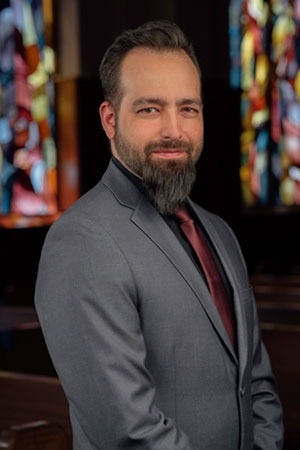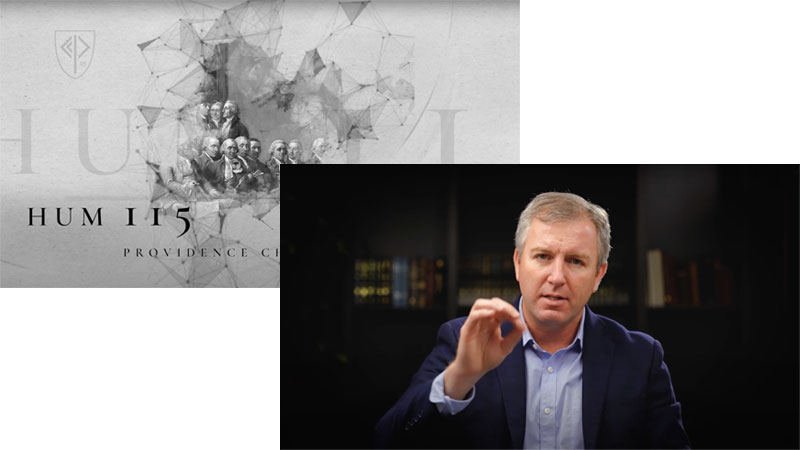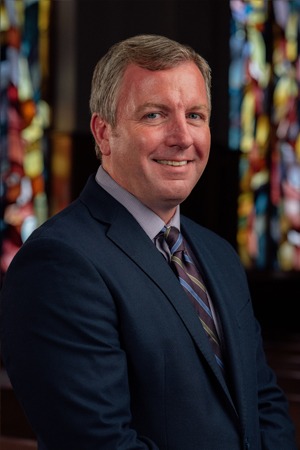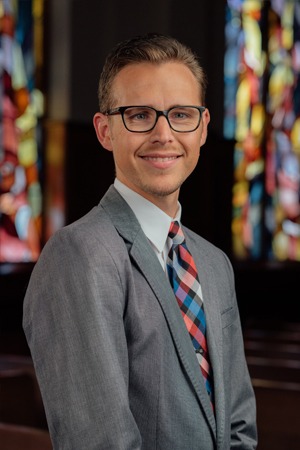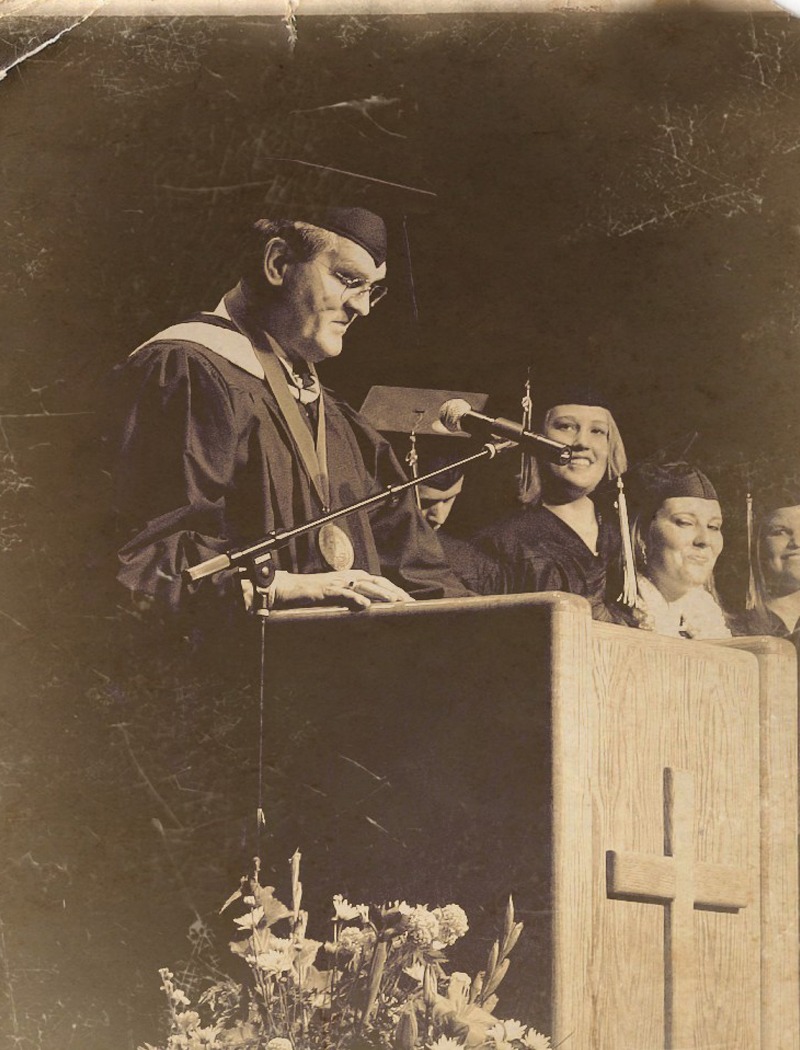By Dr. Scott Swanson
The following article is adapted from a special Thanksgiving chapel message delivered to the students of Providence Christian College.
Eli Sharabi is an Israeli who was held hostage in Gaza for 491 days after being kidnapped during the atrocities of October 7, 2023. In his best-selling memoir Hostage, he tells a gripping story of what it was like and how he and a group of fellow hostages survived amidst the beatings, humiliations, starvation, filthy conditions, and psychological warfare perpetrated by their Hamas captors. Battling stifling depression and loss of hope, he reveals how they stumbled on what proved to be the key to their survival: the practice of gratitude. Here is what he writes (129–130):
“Hunger continues to gnaw at us. To consume our bodies and souls. To devour who we are. To exhaust us. Starvation threatens to condemn us to darkness. I refuse to submit to the darkness.
Even in these excruciating times, we have a fixed ritual at the end of every day, which we refuse to skip. The four of us sit and try to think of something good that happened to us that day. Whatever day we just had. I came up with it spontaneously one evening, to lift everyone’s spirits. I told them, ‘Come on, let’s think of something good that happened today, just one thing.’ They went along with me, and it became a habit. At first, we rack our brains to think of one good thing. Then, as time goes by, we challenge ourselves to come up with three. Sometimes it is really hard, and sometimes it is easy to find three and we even continue to four or five. There are days when we even manage to find ten good things!
One good thing might be, for example, if they suddenly let us drink tea. Or if the tea was sweet. Another good thing might be if a particularly cruel guard we dislike does not show up that day. Or if the day went by without any humiliations. Or if we got a small piece of fruit from one of our captors. Slowly, this routine begins to affect our whole day. We find ourselves searching for the good things for which we can express gratitude in the evening.
Hope is never something that comes easily. It is always something you have to fight for, to work on. Like Kiddush every Friday night, like Elia’s Havdalah songs at the end of every Sabbath, like the prayers that open every morning, this circle of thanksgiving is something that we stick to, cling to, cleave to. To search for something good. To stay optimistic. To win.”
“Gratitude,” a “circle of thanksgiving,” in the midst of the most unbearable and soul-killing circumstances. Who could have imagined it, and the hope that it gave them. But there it is. Yet Sharabi is a secular Jew, not religious. While he values the traditions and even the prayers, God does not enter into the equation. It is about the will of the human spirit, holding on to and cherishing life itself with any small glimmer of good. His story demonstrates the difference that this “attitude of gratitude” can make.
But we ask, should not this recognition of the good lead one to the One who is good, from which it comes? We appreciate the gift, and so ought to remember and thank the Giver. God generously pours out His gifts to human beings, and yet pride and selfish idolatry blind them to the true source. They may even congratulate themselves for their attitude of gratitude.
We are entering the season of Thanksgiving, and millions of Americans will gather around full tables and ask, “What am I thankful for?” Yet many will not think of directing their thanks to the God who is good and who gives all good things. G. K. Chesterton wrote of his experience as a young person feeling gratitude, even for the miracle of existence itself, but not knowing to whom he was grateful. He writes in Orthodoxy (Nelson’s Royal Classics edition, 213):
“The test of all happiness is gratitude; and I felt grateful, though I hardly knew to whom. Children are grateful when Santa Claus puts in their stockings gifts of toys or sweets. Could I not be grateful to Santa Claus when he put in my stockings the gift of two miraculous legs? We thank people for birthday presents of cigars and slippers. Can I thank no one for the birthday present of birth?”
Paul in Romans 1 explains that the failure to honor God as God and to give thanks is the root of all sin (Romans 1:21–23). Exchanging created things for the Creator, they showed ingratitude by focusing on the gifts rather than the Giver. Yet we who know the Giver often find ourselves doing the same thing. We are like the Israelites in the wilderness who were dissatisfied with the supernatural manna and water from the rock because they wanted the delicacies of Egypt (Numbers 11:4–6; Exodus 17:6). We covet and grumble, as Paul in 1 Corinthians 10 (1 Corinthians 10:6–10) and James in James 4 (James 4:1–3) warn about, and so miss the happiness that gratitude brings.
We know the remedy. We need to think more on the blessings we have now in Christ, “every spiritual blessing in the heavenly places” (Ephesians 1:3). And we can say, as Eric Kamoga suggests in a Tabletalk article (“When I Do Not Feel Grateful,” November 2019): “I am grateful; help my ungratefulness.”
But the challenge for us as Christians is that we have a radical calling. We are told to see even trials and sacrificial suffering as what God is working for our good: “for those who love God all things work together for good” (Romans 8:28). Because God intends it all as good for us, we can give thanks to Him for things that do not feel like good. The command is comprehensive: “Give thanks in all circumstances; for this is the will of God in Christ Jesus for you” (1 Thessalonians 5:18). We are to be “giving thanks always and for everything to God the Father in the name of our Lord Jesus Christ” (Ephesians 5:20). And “Whatever you do, in word or deed, do everything in the name of the Lord Jesus, giving thanks to God the Father through Him” (Colossians 3:17).
As the Heidelberg Catechism teaches, this is the sum of our service and worship to God, driven by gratitude to Him for everything. Ursinus comments on Heidelberg Catechism 2: “Gratitude is, therefore, the principal end, and design of our deliverance.” It is not that God needs our thanksgiving, although it is His due, but that we need to see that in and through everything He is the source of our good and blessing, because that is our true happiness.
But this is hard.
There is an amazing example from Old Testament history that can help us. As you know, God’s people eventually had to experience the destruction and trauma of the exile. After seventy years, God blessed them with a return, but only a small number were able to go back, while the majority remained scattered across the world. Those who returned faced precarious conditions and enemies, while the promised Messianic kingdom remained far off.
Through this struggling community, God gave a refrain for His people to declare to one another to strengthen them, recover joy, and restore hope:
“Give thanks to the Lord, for He is good; for His steadfast love endures forever.”
(Psalm 106:1; Psalm 107:1; Ezra 3:11)
This sentence occurs repeatedly in the post-exilic books, especially in Ezra, the fifth book of the Psalms, and the books of Chronicles.
In Ezra 3:11, when the first returnees appointed the priests and Levites to rebuild the destroyed temple, they only managed to lay the foundation of the temple at first — before the rebuilding continued later under the encouragement of the prophets Haggai and Zechariah. As they laid that first foundation, the people sang:
“For He is good, for His steadfast love endures forever.”
(Ezra 3:11)
Some rejoiced while others wept over memories of Solomon’s greater temple, yet even in their hardship, God was providing for them.
Now consider Psalms 106 and 107, which form a deliberate pair:
- Psalm 106, written during the exile, opens:
“Oh give thanks to the Lord, for He is good, for His steadfast love endures forever!” (Psalm 106:1)And ends with a plea:
“Save us, O Lord our God, and gather us from among the nations.” (Psalm 106:47) - Psalm 107, written after the return, begins with the same refrain:
“Oh give thanks to the Lord, for He is good, for His steadfast love endures forever!” (Psalm 107:1)And answers the plea of Psalm 106:
“Let the redeemed of the Lord say so, whom He has redeemed from trouble and gathered in from the lands.” (Psalm 107:2–3)
The return was small, the beginnings humble. Yet God had heard. We give thanks both in the hardest moments and when His answers to prayer seem small.
Psalm 118 begins and ends with the refrain (Psalm 118:1; 118:29). Psalm 136 repeats “for His steadfast love endures forever” in every verse (Psalm 136:1–26).
Another powerful example appears in 2 Chronicles 20, where a vast army came against Judah. Jehoshaphat feared (2 Chronicles 20:3). He sought the Lord, proclaimed a fast, and prayed:
“We are powerless against this great horde that is coming against us. We do not know what to do, but our eyes are on You.”
(2 Chronicles 20:12)
God assured the people that the battle belonged to Him. The next morning, Jehoshaphat sent singers ahead of the army to declare:
“Give thanks to the Lord, for His steadfast love endures forever.”
(2 Chronicles 20:21)
As they began to sing and praise, “the Lord set an ambush” and routed the enemy armies (2 Chronicles 20:22).
Thus giving thanks to the Lord for His steadfast love, even when we do not see evidence of it, encourages us, cultivates humble trust, and invites the Lord to work powerfully in our circumstances.
One more word: when we especially need to thank the Lord, we often do not feel like it. But that does not matter. We simply obey. “Lord, I am not feeling grateful, so help my ungratefulness.” C. S. Lewis writes in Mere Christianity:
“Act as if you did. Do not sit trying to manufacture feelings. Ask yourself, ‘If I were sure that I loved God, what would I do?’ When you have found the answer, go and do it.
Nobody can always have devout feelings; and even if we could, feelings are not what God principally cares about. Christian love, either toward God or toward man, is an affair of the will. If we are trying to do His will we are obeying the commandment, ‘Thou shalt love the Lord thy God.’ He will give us feelings of love if He pleases. We cannot create them for ourselves, and we must not demand them as a right.
But the great thing to remember is that, though our feelings come and go, His love for us does not.”
We are not in a Hamas tunnel, but we may have our own suffocating tunnels where it is hard to see the good and the God behind it. We fight for gratitude not merely by our will, but by entrusting ourselves to the One who fights for us. We can notice the small blessings of each day, as the hostages did. Sometimes God lets us see His care in many small ways. Sometimes He gives glimpses of His larger plan. But when we cannot see any of that, the most important thing is to remember His goodness and covenant faithful love and to thank Him for it, reminding one another to do the same. Our gratitude becomes our testimony in a world where many feel they ought to be grateful but do not know to whom.
We know Him, and to Him belongs all our thanksgiving.
“Give thanks to the Lord, for He is good, for His steadfast love endures forever.”
(Psalm 136:1)
I close with a Hebrew song based on Psalm 136: “Hodu l’Adonai ki tov, Ki le’olam chasdo,” which means “Give thanks to the Lord, for He is good, for His lovingkindness is everlasting.” May we, with gratefulness this Thanksgiving, honor our God with such praise.
